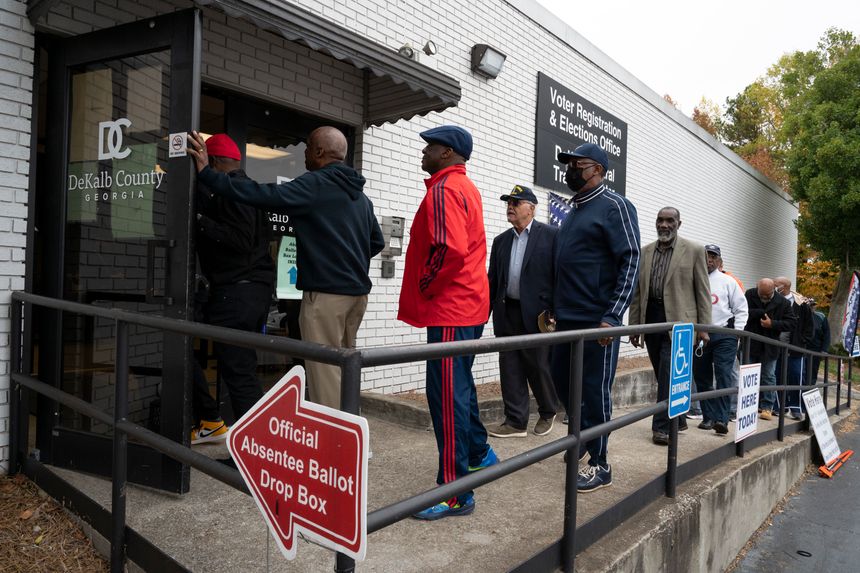
In Arizona, after armed activists began monitoring ballot drop boxes, two Republican officials in Maricopa County issued an unusual joint statement to poll watchers: “Don’t dress in body armor to intimidate voters as they are legally returning their ballots.”
In Pennsylvania, the Democrat who oversees the state’s elections has embarked on a public speaking tour to explain why delays and other unevenness in reporting election results is normal—and not an indicator of fraud.
In Georgia, the GOP secretary of state who rebuffed former President Donald Trump’s efforts to change the state’s 2020 election results is highlighting a new text-messaging service that allows poll workers to quickly report threats and other disruptions on Election Day.
The officials, along with other election administrators nationwide, are bracing for a range of challenges ahead of Tuesday’s midterm elections, including abuse directed toward poll workers and citizen-led surveillance of voters and election equipment.
Mr. Trump, a Republican, and his allies made unsubstantiated election-fraud claims when they disputed Democrat Joe Biden’s presidential victory two years ago. They lost dozens of lawsuits that challenged the 2020 results. The Justice Department said there were no signs of widespread fraud. A bipartisan consortium of local, state and federal election officials declared the 2020 race the most secure U.S. election in history.











